|
There’s no doubt that the formal education of students has been sideswiped by the coronavirus pandemic. But there’s also no doubt that we are not solving the problem, and it’s because we are conflating this impact with two distinctly different matters: child care and certification. Let’s see if we can get a handle on all of this.
The reality for most families in the Western world is that both parents work. In direct consequence, one of the primary functions of our schools is to look after the kids when mom and dad are at work. I don’t mean that in any pejorative sense-- it’s just part of the package into which we’ve all bought. When COVID closes schools, kids generally have nowhere to go but home. If mom and dad are working from home, things may be manageable, perhaps barely so, but if one or both parents are still “going in to work”, you have a serious childcare gap. This is not to say the problem is not serious, it’s just that it’s a problem distinct from the kids’ education. Conflating the two won’t help solve either. The second confusion arises from a failure to distinguish between education and certification. Certification, accreditation, credentialing, or whatever else you may choose to call it, is not education. It is either acknowledgment or permission, sometimes both. It is distinct from education. If you have a High School Leaving Certificate, all it says is that you attended high school and the administration concluded that you had paid your dues, even if that consisted of little more than attendance. More than one kid has been presented a scroll at commencement because faculty really didn’t want to see his face for one more year. I may have been one such kid. One of my medical friends asked me, “What do they call the guy who graduates last at medical school?” I fell for it and admitted I didn’t know the answer. “Doctor!”, he chortled with glee. As long as you have the certificate on the wall, you can stick needles in people. Certification doesn’t really mean you know anything or can do anything. It just means that you have managed to put in some time and pass some tests. Credentialing means only that you have been granted permission to perform certain activities, but it is no guarantee that you can perform them well, or even adequately. (Professional governance is a completely separate matter-- let’s put it aside for this discussion.) Please don’t get me wrong-- I have a BA, a JD, and an LLM, all of them earned the hard way. I’ve worked for and earned a handful of professional designations as educator, lawyer, trusts and estates professional, and professional speaker. Oh yes, and an Ottawa Taxi License. Firearms Acquisition Certificate, and a judo belt. But none of these will tell you, simply by their existence, if I’m actually any good at what I profess. Certificates on the wall only mean I know how to pass tests. These things are not education. Education is formation, education is growth, education is understanding. Real education imparts an ability to do something, whether it is to predict the weather, design a ship, write a book, or run a commercial kitchen. The best education begins with the student’s innate aptitudes and imparts the knowledge and skills to enable excellence. Take my grandfather, for example. A farm boy, he left school after Grade Four. That was in the 1800s, so it wasn’t remarkable. By the time he retired, he was the superintendent of construction for a major Ontario construction company, and spent his evenings poring over complex engineering and architectural drawings, doing complex calculations. He had acquired education on the job, but he had no certificates to show for it. His employers didn’t care, and let him build airports. This acquisition of knowledge and skills is perhaps most efficiently done in the classroom, but often the better inculcation occurs in the home, the shop, and even online. I have been blessed with many great teachers, but few greater than my parents and grandparents. They taught work ethic, problem solving, human relations… heck, I learned to read long before I went to school by ciphering the headlines as my Grandad read the newspaper, chuffed on his pipe, and tolerated (perhaps even encouraged) my constant questioning. One summer, when I was a junior counsellor at summer camp, one of the senior counselors taught me Euclid and chess strategy in the evenings. Why? Well, he was born to teach, and couldn’t help himself. None of this is to belittle the role of our schools and our dedicated teachers. My own Ontario Teacher’s Certificate is among my proudest possessions. But this is to argue that we need to untangle the knot of education, certification, and daycare. They are completely different matters, and to try to solve all three at once will only produce a headache. To the daycare conundrum I have no snappy answers and I’m intensely grateful that I’m not the one to have to sort that out. But to the notion that essential education stops when kids can’t go to school, I say “Nonsense!” There may never be a better time for our kids to discover their giftings, passions, and aptitudes, and to spend time toying with ideas, musical notes, web design, history, paint, calculus, German poetry, or the violin. With the depth and breadth of the internet and the ability for like-minded kids to collaborate online, who could ask for richer resources? And given the likelihood that many of these giftings are inherited, what better time for mom or dad or Aunt Ethel to pour of themselves into the lives of their talented kids. Because every kid is talented. The trick for us is to identify their giftings, and to help them discover and develop them. The happy news is that this exercise invariably gives more back than we give in. Yes, but what of that High School Leaving Certificate? What of the application to grad school? Well, for the most part, this isn’t competitive-- almost everyone is in the same boat. And second, maybe it’s time for credential granters to get a little more creative about what really matters and the purpose of the certification. Post-COVID may be another six months, maybe another year, down the road. But in the meantime, let’s not waste the opportunity we have. There’s a lot of real, serious education to acquire. Heck, even for adults!
0 Comments
Tomorrow is the Fourth of July. In the midst of a once-in-a-century pandemic, social and economic upheaval, and political dyspepsia, Americans will nevertheless celebrate the birth of their republic. As they should.
One might be forgiven for thinking there is little left to celebrate, that Donald Trump and his Republican lackeys have so ravaged America that no hope remains. But that would be a mistake. America thought she was getting a fierce Doberman to protect her, only to find he thought he owned the place. He lunged at the neighbours, dug up endangered plants, ate the children, and (except when he was chasing golf balls) wouldn't stop barking. But when the really tough dogs came around, he lay on his back and dribbled in submission. Humbled before Putin, Xi and Kim, and having peed on the shoes of longtime friends, the "tough guy" left America looking foolish, weak and alone in a dystopia of his making. One might point to Donald Trump alone as the canker on the soul of America, but one would be wrong. Blame must be shared by the venal gang of Republicans who not only enable and protect his perfidy, but by virtue of their history of voter suppression and gerrymandering, made him possible, a kind of Weimar redux. Dishonourable mention must also go to the vaudeville of megachurches and strutting preachers who have the audacity to call themselves by the name of the One who cared for the poor, drove the merchandisers from the temple, and brought solace to the broken. One could fairly fault Western society's inability to distinguish between reality and fantasy. And there would be some truth to that-- you can only absorb so much Hollywood and Madison Avenue before your compass begins to spin. You could call out politicised medicine which provides the lucky with best-in-the-world health care, but God help the unlucky. And you could wag a finger at the megacorporations who buy and sell politicians on the PAC market. You could castigate the super-rich who, having been born on third base think they've hit a home run, and who pay protection money to their politicians so they don’t have to share any of their purse-snatched wealth. One could point to the cabal of misfits and moral failures that passes for Trump’s revolving door cabinet-- pyramid scheme queens, failed investments bankers, robber barons and some who conduct foreign policy on the basis that "the Rapture is imminent, so why bother?" Not to mention an Attorney General who seems unaware of Rule 8.4 of the DC Bar's Rules of Professional Conduct. Yes, you could blame any and all of these, and close the book. But then you’d be left in despair, and you’d miss the best part of the story. Because the real story of America is that she is a remarkable and resilient lady who will shake off the rags of this Trumpian distemper. America will stand up and become great again, perhaps this time dressed in robes of righteousness. Great not because of her military or her industry, but great because of her people. At their core, and as individuals, Americans are far better than Trump has made them out to be. As individuals, most Americans care about their neighbours, and understand that injustice for one is injustice for all. As individuals they can be as tolerant of dissent and nonconformity as anyone. Their courageous public servants, particularly the military, understand the depth of their duty to care for their nation and their democracy. Americans are industrious and ingenious, problem-solvers extraordinaire. Americans know how to turn a dollar, and they know how to make the wheels turn. America is so much better than the tawdry whore Donald Trump pretends she is. She will be great again because there is a groundswell of young people who have had enough of division, treachery, double standards, self-dealing and shameless opportunism. America will be great again because of seniors who remember that half a century ago, they too believed in a better America, and they too marched for a better place. It was right then, and it's right today. Will America ever become perfect? Of course not-- with three hundred and thirty million souls, there will always be plenty of grifters, sleaze merchants and snake oil salesmen. But when the crooks are no longer in charge, America can stand tall again and take her natural place as leader of the free world. America gave us rhythm and blues, electric lighting, Elvis Presley, the assembly line, Mickey Mouse, Tesla, the iPhone, the telegraph, the hot dog, manned flight, cold beer, the internet, a man on the moon, and the world's first large stable modern democracy, and a whole lot more. She's a smart, talented, tough, good-hearted lady. She doesn't need to hide in her room and hate the world. She'll be back, she'll be welcomed, and she'll do fine. Norman Bowley July 3, 2020 If you stroll down a country road on a spring evening you’ll be treated to the din of ten thousand little spring peepers, each individually piping at the top of its little froggy lungs, “Pick me! Pick me! Pick me!” It’s dating season for the froggies, and this is the only pickup line they know. Crammed shoulder to shoulder, “getting lucky” means precisely that.
A mean-spirited or scientifically curious human (I’m the latter) will stamp their feet on the roadway. In a split second there is total silence-- for about seventy seconds. The little frogs, their tiny brains bathed in love hormones, soon forget about the loud noise. Before long, one tiny fellow off in a distant ditch will resurface and say, “Peeeeppp?????” Another, in a puddle in an adjoining field, emboldened by the first, will respond, “Peeeeppp!!!!” Then a third, and a fourth, until soon enough every spring peeper in the world is trying to out-peep every other spring peeper in the world. (Who am I to smirk at the froggies-- humans aren't a bit more clever at the dating game.) In our COVID-slammed world of coaching, training and speaking, so many of us have become "social media spring peepers". Entirely natural, but entirely ineffective. How can a prospect possibly choose amongst thousands of us shouting in unison “Pick me! Pick me! Pick me!”? Yes, you may be the worldwide thought-leader on the impact of tinnitus on dystopian societies, and perhaps you have five professional designations and fourteen pages of testimonials, but if the focus is on yourself, you’re wasting your time, effort and money. There’s a really simple reason for that, and we all know exactly what that is: the message is pointing in the wrong direction. As a potential consumer of your offerings, I don't care a bit about you and your magnificence until I feel that you are focused on me and my wants and my needs. Only then will I ask about your capacity to satisfy my needs and my wants. If that's how I feel about you, why should you feel any different about me? When our focused messaging demonstrates both an intellectual and emotional understanding of the specific needs of the prospective client, we can capture their attention. When it’s clear from our messaging and our outreach that we not only understand and empathize, but demonstrably can solve the issues, we will have clients. Plenty of them. Now, doesn’t that sound better than sitting in a ditch singing “Pick me! Pick me! Pick me!” ? Peeeeppp!!!! I have no shame that my Dad was a member of an antifascist organization. Actually, so was my mother, and I’m equally unashamed.
Dad’s outfit was called the Canadian Army and Mum was in the British Womens’ Auxiliary Air Force. Most of their friends and relatives were antifascist, too. Uncle Harry was considered medically unfit to serve, so he spent most nights putting out fires during the bombing of Liverpool, then showed up for work in the morning. Some of my Mum and Dad’s friends lost their lives to the fascists, and many more came home with lifelong physical and emotional scars. My grandparents were antifascists, too, and although they didn’t serve in uniform, they kept up the home front, bought war bonds, knitted socks and mittens for the troops and did what they could to support the war effort. Grandad Thornton’s once prosperous business was bombed and shattered, and his health was ruined. He died not long after VE Day, as surely a victim of the fascists as anyone. After the war ended, the world learned the truth about fascism-- it was no mere political philosophy, it was the very embodiment of evil. As the death camps were laid bare, and the gas chambers and crematoria opened for the world to see, we learned of a depravity guised as racial purity. Come to think about it, I’m an antifascist, too. I’m against any notion that one class or religion or ethnicity is better than another, or that the rule of a strongman is preferable or even desirable, or that a cabal of the rich and privileged should rule as of right. I don’t believe that because you are black, or Jewish, or gay, or suffer a mental or physical challenge, you have less rights than I, in particular the right to live. Fascist rhetoric and propaganda typically targets the left, socialists and communists as all of one evil cloth. The Nazi marching hymn Horst-Wessel-Lied was a rant against the Red Front, and today’s tweets continue the chant, pretending that the choice is binary. The centrist majority is overlooked as if it isn’t there, because fascists need a bogeyman. Once the fascists take power, the center is seduced, silenced, or eliminated, which is why centrists need to speak up while they can. I’m an anti-fascist. And damned proud of it. Photo by Kevin Bidwell from Pexels Norman Bowley
This is a parable about three buddies who lived back in the seventies. They were carburetor repairmen. Because they were very good at what they did, they made an excellent living. Until, that is, electronic fuel injection came along and made automotive carburetors a thing of the past. Albert, Bob, and Charlie suddenly had a big problem-- they supplied an expensive service for which there was little demand. Albert refused to face the problem, and just kept his head down. Before long he wasn’t doing enough business to pay the rent on his big downtown shop, so he gave the landlord a chunk of money to break his lease and moved to his home garage out in the country. Fortunately his wife was a teacher, so they could make ends meet, barely. Every month it seemed a few more old beaters were taken off the road. Before long there wasn’t much for Albert to do but sit around the shop drinking beer and grousing about how foreigners had put him out of business. Bob also saw the clouds coming but saw a silver lining. Being a classic car buff, he knew several things: first, there are hundreds of thousands of treasured classic cars, lovingly restored, all of which have carburetors. Second, most classic car owners are prepared to pay really good money to have their cars run perfectly. And that involves carburetors. Third, with the majority of carburetor mechanics leaving the trade, those who remained could do quite well if they could figure out how to get the work of these free-spending classic car owners. So he re-branded himself as the Bob the Classic Carb Wizard. He bought advertising in all the classic car magazines and traveled to every trade show and classic car event he could find. Sometimes he’d leave his booth and wander, listening for the tell-tale sound of a carburetor that really just needed a little love and a little tweaking. “Hi!,” he would introduce himself to the owner, “Nice car! I’m Bob the Classic Carb Wizard. You’re running a little rich on the front left throat-- mind if I take a look? No charge.” Five minutes later Bob left the ecstatic owner with a melodious carburetor, his card and a handful of brochures. An early adopter of courier services, Bob offered a ten day turnaround on rebuilds, and before long also began to distribute some very expensive, very high end, and very high-profit specialized carburetors. He became so busy he even thought about hiring Albert, but decided that Albert’s sourpuss attitude would not be good for business. Lastly, Charlie took still a different tack. Charlie asked himself a very important, very existential question, “What is it that I really do and love to do?” He also asked his wife, his best friends, and his best customers the same question, and came to the realization that he wasn’t just a carburetor mechanic, but he was a guy who had exceptional instincts about how things worked and why they worked and why they didn’t work and how to get them working better than ever. Toasters, cameras, clocks and garden tractors -- it didn’t matter what he touched, when Charlie was finished, they ran better than when they had come out of the factory. He just had a golden touch. As it happened, Charlie’s cousin David owned a small manufacturing company, and as it also happened, David’s assembly line gave him constant grief. So Charlie, finding himself with plenty of time on his hands, offered to make the line behave properly, saying to David, “If I can’t fix it, you pay nothing, and if I can fix it, you pay me what you think it’s worth.” After about a week of quizzing the workers and watching the line moan and squeal along, it was obvious to Charlie what the problem was. After all, figuring out mechanical problems was what he was born to do! And before very long, Charlie had David’s assembly line behaving itself as it had never behaved before. David was amazed and grateful, and gave Charlie a rather nice cheque. But more importantly, David bragged Charlie up to all his industry buddies, and before long Charlie’s phone began to ring and he became busy. Before long, Charlie’s reputation brought in so much work he needed to hire assistants. He even thought about hiring Albert, but remembered that Albert lacked imagination and always blamed others. So sad about Albert. You see, trends and technology never stand still, and sooner or later seismic change will come to your industry and to mine. Will we be an Albert, a Bob, or a Charlie? Norm Bowley teaches the Alignment Doctrine and the Client Code-- secrets to building the professional practice you and your clients deserve. He can be reached at [email protected] and at 613-862-3489 When I was a little boy, there was a “Gentle Jesus, Meek and Mild”. I would pray to him every night and ask him to look after my Mum and my Dad, the dogs and the cats, our cows, our pigs and our chickens-- each animal by name.
In Sunday School I learned of a Jesus who loved the little children and spoke out against those who would do them harm. He healed the sick and comforted the sorrowing. He said to love your enemies and to do good to those who despitefully use you. Those were his exact words. He taught us that God’s things were God’s things and Caesar’s things were Caesar's things, and they were not to be confused. He became angry on the rarest of occasions, once when a mob of clergymen tried to kill a prostitute and another time when the clergy and the merchants made common cause to commercialize the Temple. Our Sunday School room and our story books had lots of pictures of a strong, kindly Jesus, preaching on the mountainside, surrounded by little children, bearded men in long robes, and women with head-coverings. They looked quite Middle Eastern, but when I was a little boy that was OK. He never reproached. He suffered insults and beatings without a whimper, and ultimately gave his life to reconcile a wicked world to a righteous God. That was the Jesus of my childhood, the Jesus Who Used to Be. But he’s a thing of the past. There’s a new Jesus in town, and he’s a very different guy. He’s hard-eyed and square-jawed and he packs a gun, even in church. Nobody’s going to mess with him-- no more of this weak “turn the other cheek” nonsense, the kind of talk that could get you crucified. And certainly no more hanging around with Middle Easterners, unless they’ve got lots of money. The new Jesus takes firm action and he gets things done. He stands strong against the kind of people he doesn’t like-- people who were born in the wrong country or with the wrong orientation. They can just go to Hell, and it would serve them right. But he’s also toned down many of the finicky old rules about stuff like adultery and lying and stealing and abusing the poor. Even torture and warmongering are OK so long as we’re clear about who the bad guys are. But not all the rules are gone. While he might give adultery a mulligan, the new Jesus is pretty clear about the truly unacceptable. Like abortion and homosexuality. And bad words, especially the F-word. After all, there need to be some things to separate the good guys from the bad guys. The new Jesus may have anger-management issues, but they’re certainly not directed toward the clergy, who seem to be prospering pretty nicely, thank you very much. I’m guessing they’ve got a deal worked out. This is the Age of the Deal, after all. But while we’re waiting for the new Jesus to whip the world into shape, I still remember fondly the Jesus Who Used to Be, the one who helped me try to be a better little boy, to not lie to my parents, and to share my lunch. “Unless you change and become like little children, you will never enter the kingdom of heaven.” -- The Jesus Who Used to Be Norman Bowley writes, speaks and teaches about leadership, communication, decision-making, and occasionally about things that break his heart. “Grandfathering” is a much-cherished legal concept, and a good one at that. The notion is that an individual’s longstanding right or privilege may be allowed to continue notwithstanding new rules which apply to everyone else. Thus if a new by-law requires all new houses to be built of brick, it will likely grandfather all the existing wooden houses.
But the origins of the expression were much more sinister and had to do with voter suppression. After the American Civil War and the subsequent failure of Reconstruction, many of the former Confederate states introduced voter-suppression laws in the guise of voter qualification. Every voter for local, state or federal elections was required to register and demonstrate that he (yes, “he”) was qualified. This typically took the form of extremely difficult mathematical or linguistic tests that you and I would likely fail, including accurately guessing the number of marbles in a large jar. Fortunately for most white males, except possibly for “white trash”, there was an exemption if your grandfather had voted in such elections. Virtually no black could hope to be “grandfathered”. Tsk, tsk. Voter repression continues to exist in some states, particularly those tinged the same colour as Rudolph’s nose. One of the most clever devices is the “exact match” law which typically requires you to show up for voter registration with several pieces of official ID which exactly match your name on the census lists. Now, for many of us, that would be no big deal. If your name is Susan Mary Black, and you never got stuck with a pervasive nickname like Bunny, you’re likely in luck. But for poor souls like myself, not so much. Registered at birth as John Norman Bowley, my paternal grandfather Normand (pictured above) promptly decided I was his namesake and called me Normie. It stuck. Middle name problem. With a little bit of bureaucratic bungling over the years, I have licenses and certificates and credit cards and whatevers featuring J-Norman, Norman J, Norman, Normand, and one or two others. Some of my francophone friends tease me as Jean-Normand. At the hospital I am John. For international and air travel I’ve managed to get enough of these papers to match that I can get on an airplane, but it was, believe me, pretty arduous to get everything all lined up. And I have three university degrees, several professional designations and I know my way around the system. I can only imagine what it would be like to come from a single-parent household, birth registration in the name of some long-forgotten father, school certificates in the name of either my birth mother or the aunt who raised me, a military discharge certificate issued by some official who didn't like me or the funny way my name was spelled, and fearful and skeptical of a system that always gave me the short end, anyway. You get the picture. It would sure be a relief to be grandfathered! With all eyes on the US midterms only a few days hence, observers around the world are beginning to understand that Donald Trump was quite right to speak of “rigged” elections, although not exactly as he meant.
Notwithstanding the belief of many Americans, their country is not the world’s only democracy, nor its oldest, largest or even best example. It is, however, the most influential functioning democracy and until recently something of a beacon. And it has contributed disproportionately to our political lexicon. Even from its beginnings, American democracy has never been unalloyed. Anti-democratic tendencies have waxed and waned since the days of Jefferson and Hamilton. The Electoral College, for example, was calculated to keep the ultimate selection of a president out of the hands of the great unwashed. But perhaps the most cynical perversions of democracy have to do with the manipulation of the voting process. While the suppression of voting groups by qualification tests is pernicious enough, perhaps the most insidious abuse is gerrymandering. To understand gerrymandering, consider a large square containing twelve dots which you have been tasked to divide into four voting districts. Now, of course, if you truly want to practice fair representation, you will divide the square such that there are three dots in each portion, but if you want your party to win the next election, and many more after that, you will identify the three most faithful dots and give each of them its own division, leaving the other nine to share the remainder. You will thus be virtually guaranteed a majority win every time. (It’s slightly more complex than that, but you get the idea.) Shenanigans of this sort long predate American democracy, going back at least to the rotten boroughs of Britain, which were finally abolished by the Reform Act of 1832. The most famous of these, Sarum Hill in Wiltshire (1295-1832), even after it ultimately became uninhabited, still qualified to send two members to Parliament, including the Prime Minister William Pitt the Elder. It was Massachusetts’ Governor Elbridge Gerry who gave his name to the American practice. In 1812 he signed a bill which re-drew the electoral map of the state to give near-perpetual electoral success to his Democratic-Republican party. Before long, some wag noticed that the map of one grotesquely distorted district rather resembled a salamander, and coined the term Gerry-mander, which expression has become part of our political lexicon. Gerrymandering remains alive and well in the United States because, unlike in most other democracies, the power to draw electoral boundaries remains with elected officials. To nobody's surprise, politicians continue to draw district boundaries to their own advantage. They are human, after all.lick here to edit. Just recently, my dear and ever-patient wife sent me an e-mail asking my opinion about a Christmas gift for one of our grandchildren.
Like many of us, I use Gmail. As I was opening and reading her question, Google had already proposed three responses: “Yeah, that’s a good idea.”, “I think that's a great idea!”, and “I don't think so.” All I needed to do was click on one of them. While we’ve come a long way from telemarketers' predictive dialing and WordPerfect's primitive Spellcheck, we've also learned (often the hard way) that blind reliance on computer-proposed answers can get us in trouble. We’re not quite at the point where we can trust computers to do all of our thinking for us. Without doubt, Artificial Intelligence apps such as Grammarly are wonderful for screening out goofy typos and spelling errors, but they can't yet detect the sense of the thing. For example, a few Briefings back I deliberately wrote, “Ore wood eye?” Grammarly gave me a pass on that syntactical nonsense. The next week I used the indicative instead of the subjunctive, and not a murmur from Grammarly. But a human reader caught me! Oddly enough, we are much less concerned about letting computers speak for us than letting them drive our cars for us. While most of the evidence is that self-driving cars are already far safer than human-driven cars, most of us approach the technology with trepidation. Self-driving cars are just about physics-- distance, speed, road surfaces, gaps-- all measurable to fifty decimal places and utterly predictable, and also not subject to fatigue, distraction, alcohol or medications. On the scale of things, easy stuff. But communication is far more complex than driving a car. It's not just words-- it's about subtly nuanced interchanges between minds, hearts and souls. The day may come that Artificial Intelligence knows about your mood, your level of emotional intimacy with the other person and your vocabularic style, and it may learn to copy the tell-tale tremble in your voice, the furrow in your brow, and the inquiring tilt of your head. But until it does, you're still in charge of your essential human interactions. Until Artificial Intelligence is smarter than you, you're still responsible for what you say. If you're prepared to hit "send" without reading and thinking, be prepared for the consequences. |
AuthorNorman Bowley teaches the Alignment Doctrine and the Client Code-- secrets to building the professional practice you and your clients deserve. Archives
September 2020
Categories |
-
Home
- Video >
-
Communication
>
- Elements >
-
Modules
>
-
Modules A-M
>
- Avoiding amateurism
- Change: Understanding It, Facing It, Profiting From It
- Communication for Long Term Relationship
- Communications Horror Stories
- Communications that blow up in your face
- Communicating toward success
- Earning the Right to Be Heard
- Gerunds, Mesolects and Other Arcane Terms of Art
- Having a Toad Day
- Healthy Fear
- Hippos and Raccoons-- Deadly Underestimation
- How I Moved From Doing What I Liked to Doing What I Loved
- How to Be on the Same Wavelength as Your Audience
- How to Pick Up a Porcupine-- Dealing With Difficult People
- Key of Trust
- Manipulation
- Mastering the Technologies
- Mining the Subconscious
-
Modules N-Z
>
- Quick and Dirty-- the 80/20 Rule
- Sabotaging Your Message
- Scar Tissue
- Secrets of the Druids
- Some Specific Approaches to Communications
- Specific audiences
- Symbolism-- the Heart of the Communicative Process
- Talking to Yourself and Why You Should Do It
- The Difference Between Leadership and Management
- The Eyes Eat First
- The Eyes Have It
- The Lizard Within-- What Your Reptilian Brain Makes You Do
- The Media of Communication
- The Respect Deficit
- The Secret of Authenticity
- Thinking About the Kinds of English
- Websites, Blogs and Newsletters
- When you don't have time to plan
- When You'd Rather Shoot Yourself
- Who's your audience? Targeted communication.
-
Modules A-M
>
- About us >
- Norman Bowley
- FREE
- Services
- Testimonials
- Blog
- FREE
Proudly powered by Weebly


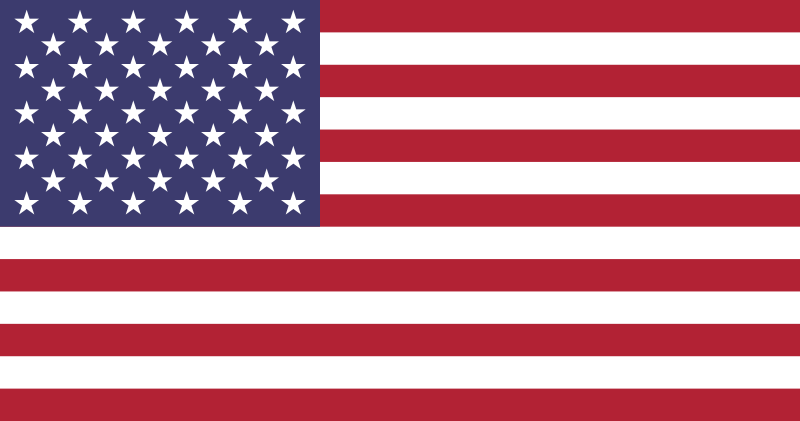

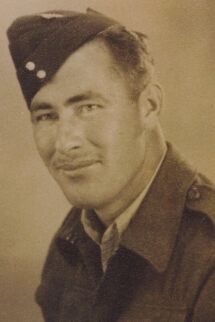


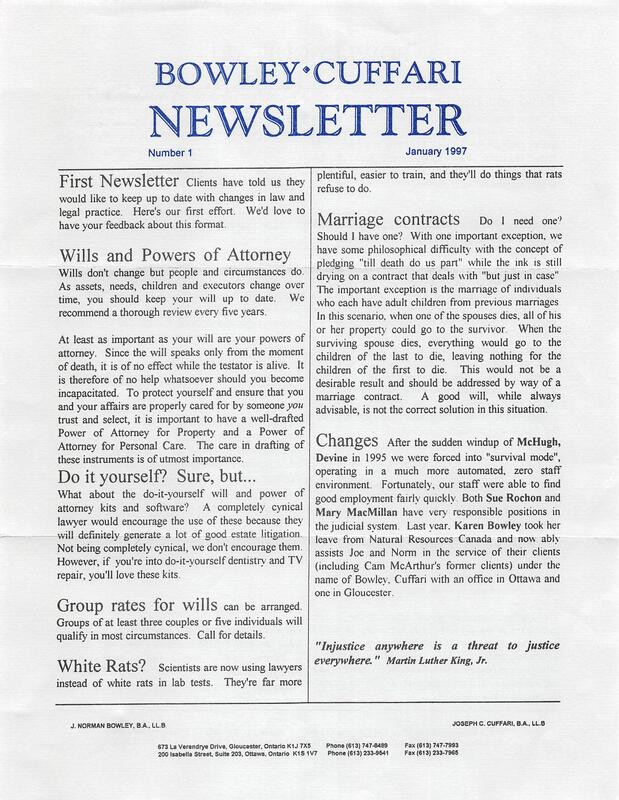
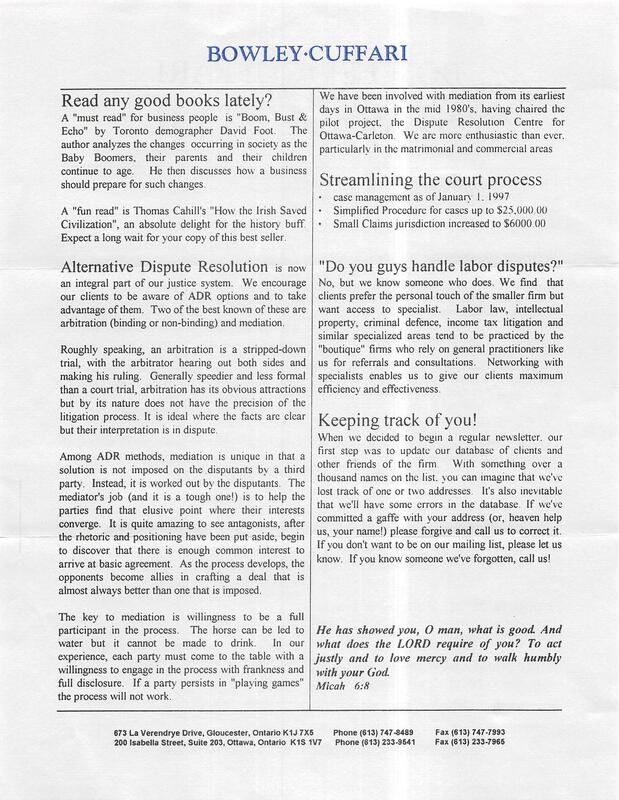

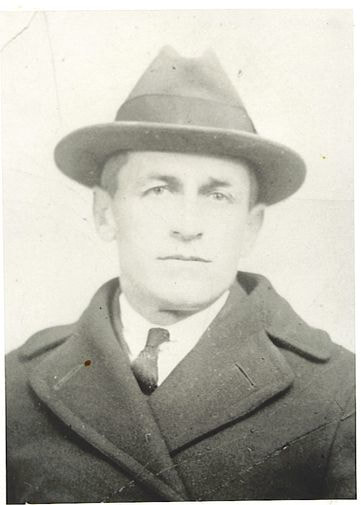
 RSS Feed
RSS Feed